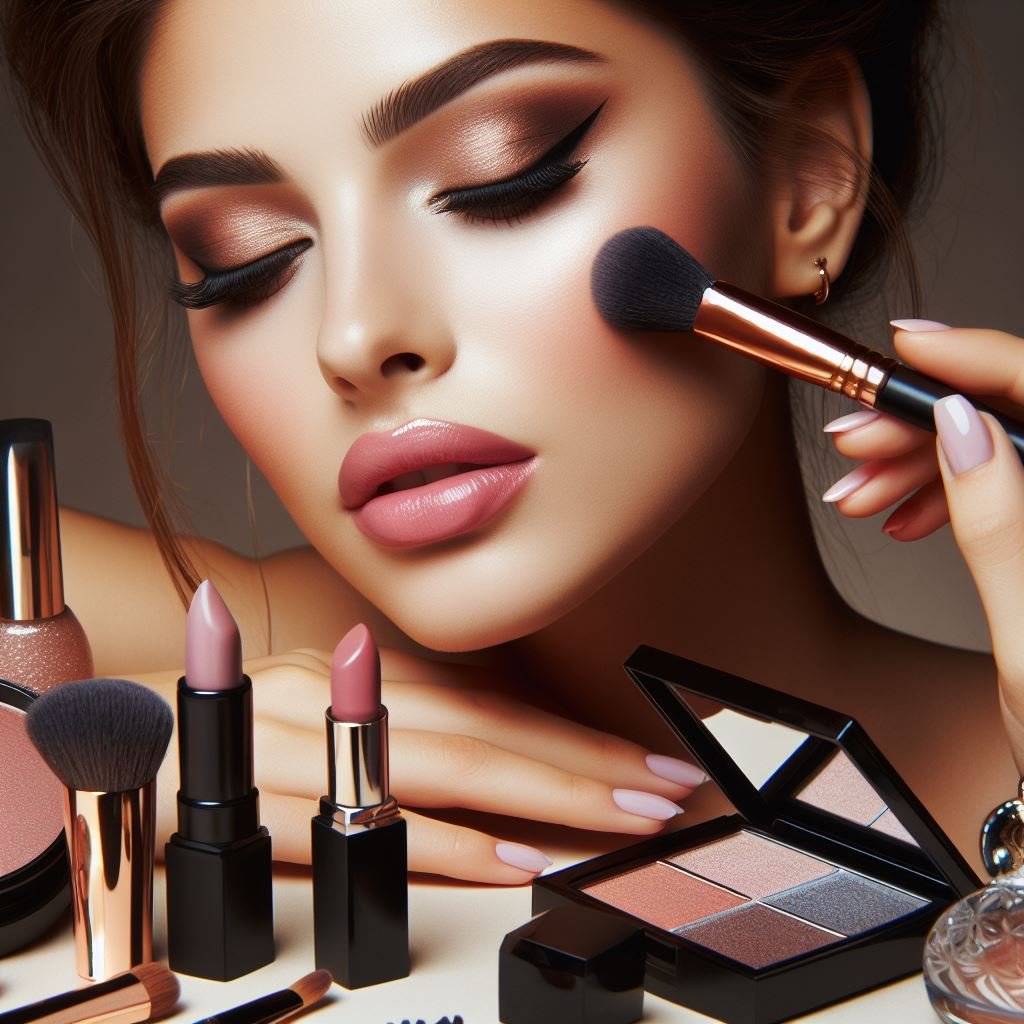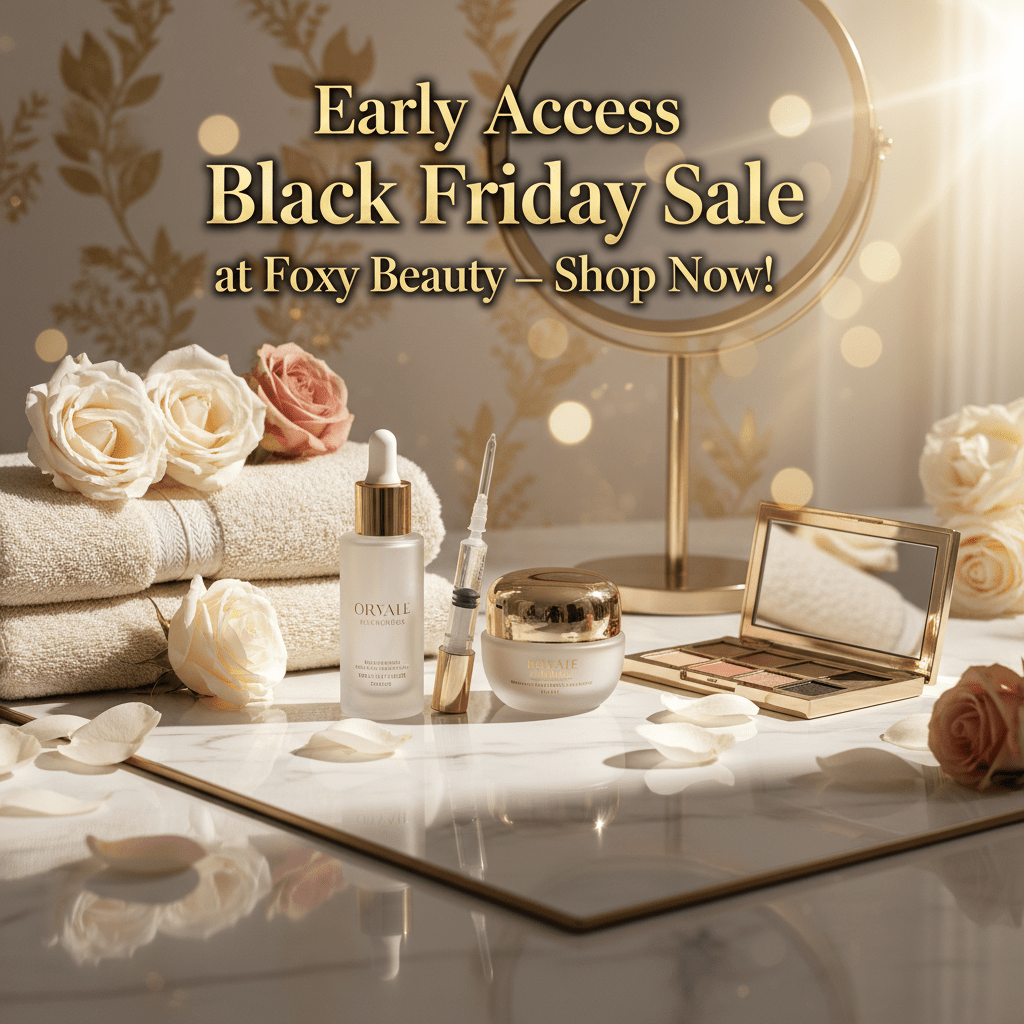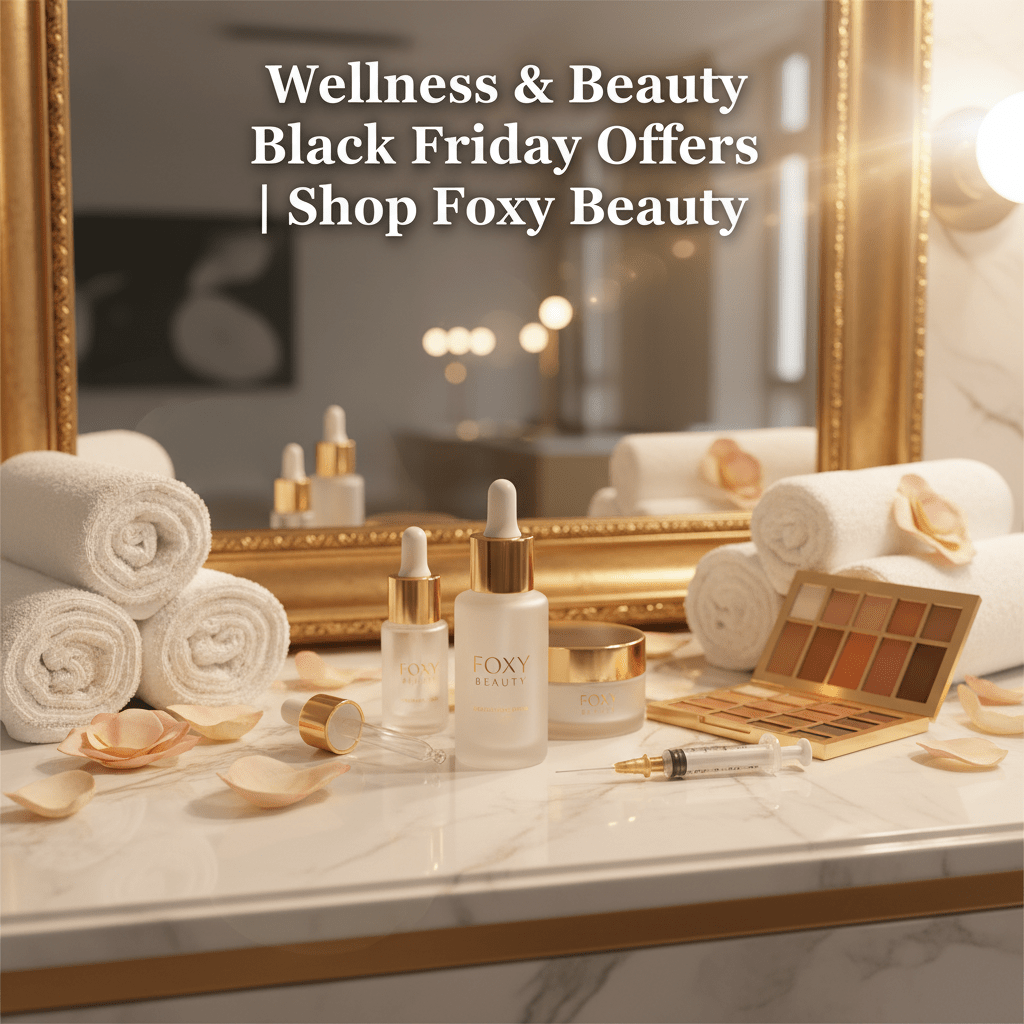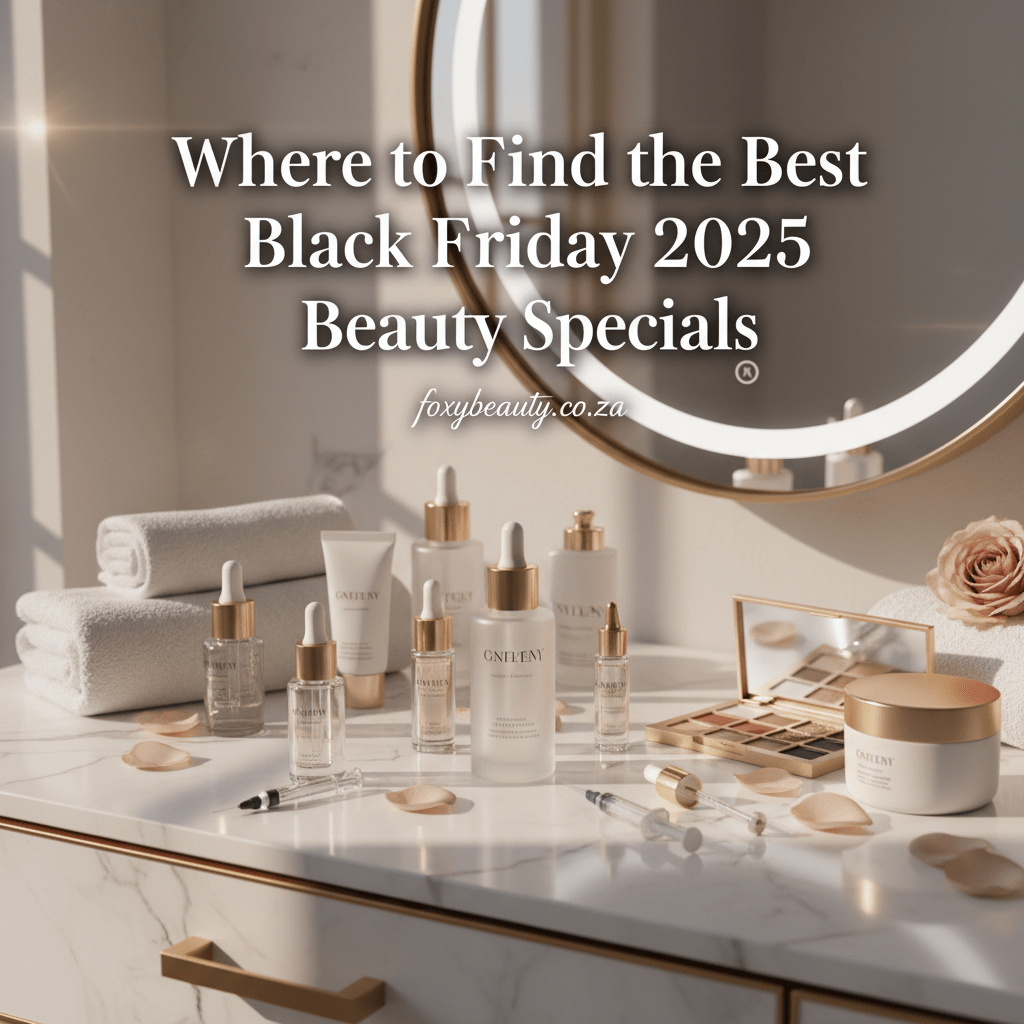Best Cosmetic Products for a Flawless Look
Introduction to Cosmetic Products
Cosmetic products have been an integral part of human culture for centuries, offering a myriad of ways to enhance, alter, and maintain aesthetics. From the kohl used by ancient Egyptians to the sophisticated products of the modern era, these beauty enhancers play a significant role in self-expression and grooming.
Types of Cosmetic Products
Catering to diverse needs and preferences, cosmetic products come in endless varieties. Makeup essentials such as foundations, lipsticks, and eyeliners lead the realm of color cosmetics, allowing for the personalization of one's appearance. The realm of beauty products extends further, embracing nail polish, hair dyes, and perfumes.
Benefits of Using Cosmetic Products
Used mindfully, cosmetics can not only boost confidence but also provide protection. Skin care items like moisturizers and sunscreens defend against environmental threats, while natural cosmetics promise reduced exposure to harsh chemicals.

Risks of Using Cosmetic Products
However, vigilance is key. The risks associated with artificial additives and allergens call for a meticulous read of ingredient lists, emphasizing the need for consumer awareness in avoiding adverse reactions and long-term health implications.
Popular Cosmetic Products
Amidst the vast selection, certain items stand as staples. These trendy innovations frequently become must-haves due to their effectiveness, quality, or novelty, shaping the face of the beauty treatment industry.
Analyzing Quality of Cosmetic Products
Quality remains paramount, with consumers increasingly turning to reviews, swatches, and professional opinions before investing in new products. This discernment is essential in an industry continually buffeted by emerging brands and formulations.
How to Find the Right Cosmetic Products
Finding the right cosmetic product is akin to matchmaking; it involves understanding one's skin type, concerns, and desired outcome, all while being conscious of the ingredients and brand ethos.
Makeup and Skincare Routines for Different Age Groups
Diverse life stages necessitate tailored regimens, with each age group harboring unique skin care necessities—from the acne-prone teenage years to the fine lines concerned maturity.
Frequently Asked Questions About Cosmetic Products
Myths, queries, and advice orbit the topic of cosmetics, with resources expanding to provide clarity and guidance to curious consumers seeking to navigate the complex landscape of beauty products.

Types of Cosmetic Products
The beauty industry offers a multitude of cosmetic products catering to various needs and preferences. These products are designed not only to enhance physical appearance but also to promote skin health. Here's a look at the diverse range of options available:
Makeup
- Foundation: Aims to create a smooth, even complexion.
- Eye Makeup: Including eyeshadows, eyeliners, and mascaras to accentuate the eyes.
- Lip Products: Such as lipsticks, lip glosses, and lip liners for a pop of color and hydration.
Beauty Products for Complexion
Beauty products also encompass a range of items that target complexion enhancement and maintenance:
- Primers: Prep the skin for a flawless makeup application.
- Concealers: Cover imperfections and blemishes.
- Blushes and Bronzers: Add color and dimension to the face.
- Highlighters: Emphasize the high points of the face for a radiant glow.
Skin Care Products
Skin care is an essential category within cosmetic products, focusing on the health and vitality of the skin:
- Cleansers: Remove makeup and impurities from the skin.
- Moisturizers: Hydrate and protect the skin barrier.
- Exfoliators: Slough away dead skin cells for a smoother skin.
- Serums and Treatments: Target specific skin concerns like aging, acne, or hyperpigmentation.
Natural Cosmetics
For those seeking a beauty treatment with fewer chemicals, natural cosmetics provide a plethora of options:
- Organic Makeup: Comprises of natural ingredients, often vegan and cruelty-free.
- Mineral-based Products: Known for their non-irritating formulas suitable for sensitive skin.
Choosing the right cosmetic and beauty products is an integral part of any beauty treatment. For an extensive selection of makeup and beauty products, discover the range at Foxy Beauty to find your perfect match.
Benefits of Using Cosmetic Products
Embracing beauty products can enhance one's appearance and boost confidence significantly. Here are some advantages of incorporating cosmetic products into your daily regime:
Improved Skin Health
- Moisturization: Products like creams and lotions provide essential hydration, keeping the skin supple.
- Protection: Many beauty products contain SPF, shielding the skin from harmful UV rays.
- Anti-aging: Natural cosmetics often include antioxidants that help delay signs of aging.
Enhanced Appearance
- Complexion: Foundations and concealers can create a smooth, even skin tone.
- Color: Makeup such as blushes and lipsticks add a pop of color to brighten the face.
Psychological Benefits
- Confidence Boost: A touch of makeup can significantly boost self-esteem and confidence.
-
Stress Reduction: Skincare routines can serve as a therapeutic beauty treatment, offering a relaxing break from daily stressors.
While the gains are alluring, it's vital to balance these with awareness of any potential risks of using cosmetic products. Understanding the ingredients and how they interact with your skin type can help mitigate any adverse effects and ensure that you enjoy the benefits safely and responsibly.
Finding the Right Balance
Choosing the right cosmetic products is pivotal to maximize these benefits while maintaining skin health. Opt for natural cosmetics when possible, as they are often gentler on the skin and eco-friendlier. Remember, the ultimate goal of beauty products should be to enhance your inherent beauty, not overshadow it.
In conclusion, the prudent use of cosmetic products can lead to a plethora of benefits, from an improved complexion to a psychological boost. By prioritizing skin health and being selective with the products you apply, you can enjoy the world of cosmetics confidently and safely.
Risks of Using Cosmetic Products
While cosmetic products bring an array of beauty benefits, it is crucial to acknowledge the potential risks associated with their use. Understanding these risks can help consumers make informed decisions about the beauty products they choose to incorporate into their beauty treatment regimens.
Potential Skin Reactions
- Allergic Reactions: Ingredients in cosmetics can cause allergies for certain individuals leading to redness, itching, and rashes.
- Acne Breakouts: Oil-based makeup can clog pores and cause acne, commonly referred to as acne cosmetica.
- Sensitive Skin Irritation: Fragrances and preservatives may irritate sensitive skin, causing discomfort or dermatitis.
Chemical Exposure
Many traditional cosmetics contain chemicals that may be absorbed by the skin, potentially leading to long-term health issues. Parabens and phthalates, for instance, have been linked to hormonal imbalances. Choosing natural cosmetics can be a safer option to mitigate these risks.
Eye Health
Products such as eyeliner or mascara, if not used properly, can lead to infections or conjunctivitis. It is especially important to replace makeup regularly to reduce the risk of bacteria build-up.
Environmental Considerations
Skin care and cosmetics also have an environmental impact. From packaging waste to the ingredients that wash off and enter waterways, considering eco-friendly and sustainable products is both a personal health and environmental choice.
Ensuring Safety in Beauty Products
Here are some bullet points to consider ensuring the safe use of cosmetic products:
- Always perform a patch test before using a new product extensively.
- Review the ingredients list for any known allergens or irritants.
- Check the expiration date and adhere to product-specific recommendations.
- Research and select brands committed to ethical practices and natural ingredients.
In conclusion, while the use of cosmetic products enhances personal aesthetics, consumers should be vigilant of the potential risks. Adequate research and mindfulness can help avoid adverse effects and promote a healthy approach to beauty treatments. For more information on making safe cosmetic choices, consider visiting Foxy Beauty.
Frequently Asked Questions About Cosmetic Products
Popular Cosmetic Products
When it comes to cosmetic products, there are countless options available in the market. Each person has their own preferences and needs when it comes to beauty and skincare. Here are some popular cosmetic products that are widely used by people all over the world:
1. Makeup
Makeup is perhaps the most well-known category within the cosmetic products industry. From foundation and concealer to eyeshadow and lipstick, there is a wide range of makeup products available. These products help enhance natural features, cover imperfections, and create different looks for various occasions.
2. Skincare Products
Skincare products are essential for maintaining healthy and nourished skin. They include cleansers, toners, moisturizers, serums, and masks. Skincare products work to cleanse, hydrate, and protect the skin from environmental damage. They can also target specific concerns such as acne, aging, or hyperpigmentation.
3. Hair Care Products
Hair care products are designed to keep your hair clean, healthy, and styled. Shampoos, conditioners, hair oils, and styling products are all part of this category. They help to nourish the hair, add shine, control frizz, and enhance the overall appearance of your locks.
4. Nail Care Products
Nail care products include nail polish, nail polish removers, cuticle oils, and nail strengtheners. They are used to maintain the health and appearance of your nails. Nail polish comes in a variety of colors and finishes, allowing you to express your personal style through your manicure.
5. Fragrances
Fragrances are cosmetic products that add a pleasant scent to your body. Perfumes, colognes, and body mists fall under this category. Fragrances are a popular way to enhance your confidence and leave a lasting impression.
With the market flooded with cosmetic products, it's essential to choose products that suit your needs and preferences. Consider factors such as your skin type, specific concerns, and personal preferences when selecting cosmetic products. Additionally, it's important to read reviews, check ingredient lists, and purchase from trusted brands to ensure the quality and authenticity of the products you choose.
Remember, cosmetic products can work wonders when used appropriately and in moderation. Always follow the instructions provided on the packaging and consult with a healthcare professional if you have any concerns or allergies. By choosing the right cosmetic products, you can enhance your natural beauty and feel confident in your appearance.
Analyzing the Quality of Cosmetic Products
In a market flooded with beauty products, distinguishing high-quality cosmetic products from those that could disappoint can be tricky. Assessing quality involves considering makeup, skin care, and other beauty treatments for their ingredients, effectiveness, and safety. Here's a comprehensive guide to help you discern the quality of your cosmetics.
Key Elements in Quality Cosmetics
- Ingredient Composition: Ensure that products contain safe, non-toxic, and, preferably, natural cosmetics ingredients.
- Brand Reputation: Established brands with positive reviews are often synonymous with quality assurance.
- Efficacy: A high-quality product should deliver on its promises, providing the anticipated beauty treatment results.
- Packaging Integrity: Quality products tend to have durable, protective packaging which keeps the product safe and extends its shelf life.
- Regulatory Compliance: Check for approvals from regulatory bodies like the FDA, which indicate compliance with safety standards.
While assessing the quality of beauty products, it's critical to understand that pricier items aren't always better. However, very cheap products may compromise on ingredients and manufacturing processes. When exploring options, consider how the product feels and works with your skin; a tactile experience often reflects quality.
Performance and User Feedback
User reviews and testimonies provide invaluable insight into a product's performance. Look for products with a majority of positive feedback that detail user experiences with the product's texture, longevity, and skin compatibility. Additionally, researching third-party testing results can be advantageous.
Remember the importance of patch tests to ensure there's no allergic reaction when trying new skin care products. Moreover, you should research widely before making a purchase, looking into multiple sources of information to get a well-rounded view of the product's quality. Here are some pointers:
- Look for product awards or certifications, which can be a testament to the product’s excellence.
- Check the concentration of active ingredients claims, as higher concentration often equates to higher potency.
- Consider the transparency of the brand in disclosing all ingredients, which reflects their confidence and honesty.
In conclusion, analyzing the quality of your cosmetic products before purchase is essential to ensure you’re using the best products for your beauty treatment and skin care routines. By considering these factors, you can make informed decisions for your beauty regimen and get the most out of your cosmetics.
``````htmlHow to Find the Right Cosmetic Products
Discovering the right cosmetic products for your beauty regimen can be a daunting task given the plethora of options available. From makeup essentials to skin care miracles, each product claims to offer the best results. However, finding products that suit your skin type and preferences is crucial. Here's a comprehensive guide to help you navigate the beauty aisles with confidence:
Assess Your Skin Type
- Oily Skin: Look for labels that mention "non-comedogenic" or "oil-free".
- Dry Skin: Choose products with hydrating properties and emollients.
- Combination Skin: Go for products that balance hydration and control oil.
- Sensitive Skin: Pick natural cosmetics or products free from fragrances and irritants.
Ingredients Matter
Paying attention to what goes into your cosmetic products is as important as the benefits they claim. Prioritize natural cosmetics with plant-based or organic ingredients to reduce exposure to harmful chemicals. Keep an eye out for key ingredients that boost skin care, such as hyaluronic acid, retinol, or vitamin C.
Read Reviews and Seek Recommendations
Gone are the days when you had to guess a product's effectiveness. Utilize beauty product reviews to gauge the experience of others. Seek beauty treatment recommendations from friends, beauty forums, or even social media influencers who have a similar skin type or beauty concerns.
Sample Before You Purchase
Never underestimate the power of a sample. Many stores and brands offer samples that allow you to test the product before investing in the full size. This minimizes the risk of allergic reactions or dissatisfaction with the product performance.
Bear in Mind Your Budget
While it's tempting to splurge on luxury items, there are numerous high-quality, budget-friendly beauty products on the market. Establish a budget and stick to it, allowing for occasional splurges on staple items that you use regularly.
By keeping these key points in mind, you can create a personalized arsenal of cosmetic products that not only enhance your beauty but also support the health of your skin. Taking the time to find the right makeup and skin care products will ensure that your beauty regimen is both effective and enjoyable.
```Makeup and Skincare Routines for Different Age Groups
Having a proper makeup and skincare routine is essential for maintaining healthy and youthful-looking skin. As we age, our skin undergoes changes and requires different care to address specific concerns. Whether you are in your 20s, 30s, 40s, or beyond, it is important to adapt your cosmetics and skincare products to meet your evolving needs. Here are some recommended makeup and skincare routines for different age groups:
20s
In your 20s, focus on prevention and protection. This is the time to establish healthy skincare habits that will benefit you in the long run. Start by cleansing your face twice a day and applying a lightweight moisturizer with SPF to protect your skin from sun damage. Opt for a gentle exfoliator once a week to remove dead skin cells and keep your complexion fresh. For makeup, keep it minimal with a tinted moisturizer, concealer, mascara, and a lip balm.
30s
In your 30s, you may start noticing signs of aging like fine lines and loss of elasticity. Upgrade your skincare routine by incorporating anti-aging ingredients such as retinol and hyaluronic acid. Use a hydrating cleanser to maintain moisture in your skin and follow up with a serum that targets your specific concerns. Invest in a good eye cream to combat crow's feet and a moisturizer that provides both hydration and anti-aging benefits. For makeup, incorporate a primer to create a smooth canvas, and opt for a medium coverage foundation or tinted moisturizer. Don't forget to apply a nourishing lip balm and a blush to add a youthful glow.
40s
In your 40s, the focus should be on hydration and collagen production. Look for skincare products that contain ingredients like peptides and antioxidants to help firm and plump your skin. Incorporate a rich moisturizer that provides intense hydration and apply a targeted treatment for areas like the neck and décolletage. Use a foundation that offers more coverage to hide any age spots or uneven skin tone. Consider using a lip plumper and a cream blush to add volume and a natural flush to your face.
50s and Beyond
In your 50s and beyond, the key is to continue nourishing and protecting your skin. Look for skincare products that provide intense hydration and address concerns like sagging skin and age spots. Consider using a serum that targets hyperpigmentation and a neck cream to firm and tighten the skin in that area. For makeup, choose a lightweight foundation that offers coverage without settling into fine lines. Use a creamy concealer to hide dark circles and finish with a moisturizing lipstick or gloss to add a pop of color to your lips.
Remember, these routines are just guidelines and can be customized based on your individual needs and preferences. Pay attention to your skin and adjust accordingly. With the right products and consistent self-care, you can enhance your natural beauty at any age.
Frequently Asked Questions About Cosmetic Products
Finding the right beauty products and establishing an effective makeup and skin care routine can be challenging with the vast array of options available. Below are some of the most frequently asked questions about cosmetic products:
What Should I Consider When Choosing Natural Cosmetics?
- Check the ingredient list for any potential allergens.
- Look for certifications that confirm the product's organic or natural status.
- Consider the company's reputation for producing high-quality natural cosmetics.
How Can I Determine the Quality of Cosmetic Products?
Assess the quality of cosmetic products by:
- Researching the brand and reading customer reviews.
- Testing the product, if possible, to see if it reacts well with your skin type.
- Noticing if the product has a consistent texture, color, and shelf-life.
Can Beauty Products Cause Skin Irritation?
Beauty products can cause skin irritation for several reasons, including:
- Presence of harsh chemicals or fragrances.
- Expired products.
- Personal allergies to specific ingredients.
Always perform a patch test before full application to test for adverse reactions.
What's the Difference Between Skin Care and Beauty Treatment?
Skin care refers to the daily routine of cleaning and nourishing your skin, while a beauty treatment is more intensive and often performed at a salon or clinic, such as facials, peels, or microdermabrasion.
Are Expensive Cosmetics Always Better?
Not necessarily. The effectiveness of a cosmetic product is not always reflected in its price. Some affordable brands offer high-quality, effective products. It's important to evaluate a product based on its ingredients and performance rather than price alone.
How Often Should I Update My Makeup Collection?
It is recommended to:
- Replace makeup products according to their expiration dates—mascara every 3 months, foundations and lipsticks every 1-2 years, and powders every 2 years.
- Consider updating your products as your skin changes with age or with the seasons.
Remember, the right cosmetic products can be a valuable addition to your daily routine. For more information and a selection of quality beauty products, you can click here to explore your options.
In conclusion, when it comes to cosmetic products, informed choices based on individual needs, quality assessments, and awareness of potential risks will lead to a more satisfying and safe beauty experience.
Frequently Asked Questions About Cosmetic Products
Here are some common questions that people have about cosmetic products:
1. Are cosmetic products safe to use?
Yes, cosmetic products are generally safe to use. However, it is important to read the labels and instructions carefully, and to follow them correctly to minimize any potential risks. If you have any allergies or sensitivities, it is recommended to do a patch test before using a new product.
2. Can cosmetic products be used on all skin types?
Most cosmetic products are designed to be suitable for all skin types. However, it is important to choose products that are specifically formulated for your skin type. For example, if you have oily skin, it is best to use oil-free or mattifying products, while those with dry skin may benefit from products that provide extra hydration.
3. Can I use expired cosmetic products?
It is generally not recommended to use expired cosmetic products. Expired products may have a change in texture, color, or smell, and their effectiveness may be compromised. Additionally, using expired products can increase the risk of irritation or infection. It is best to check the expiration dates and dispose of any expired products.
4. How often should I clean my makeup brushes?
Makeup brushes should be cleaned regularly to remove buildup of makeup, oils, and bacteria. It is recommended to clean brushes at least once a week. You can use a gentle brush cleanser or a mild soap to clean the bristles, and then rinse them thoroughly with lukewarm water. After washing, reshape the bristles and let the brushes air dry completely before using them again.
5. Are natural cosmetic products better than synthetic ones?
Natural cosmetic products are not necessarily better than synthetic ones. The effectiveness and safety of a product depend on its formulation and ingredients, rather than whether it is natural or synthetic. Some natural ingredients can be beneficial for the skin, but there are also synthetic ingredients that have been extensively tested and proven to be safe and effective.





